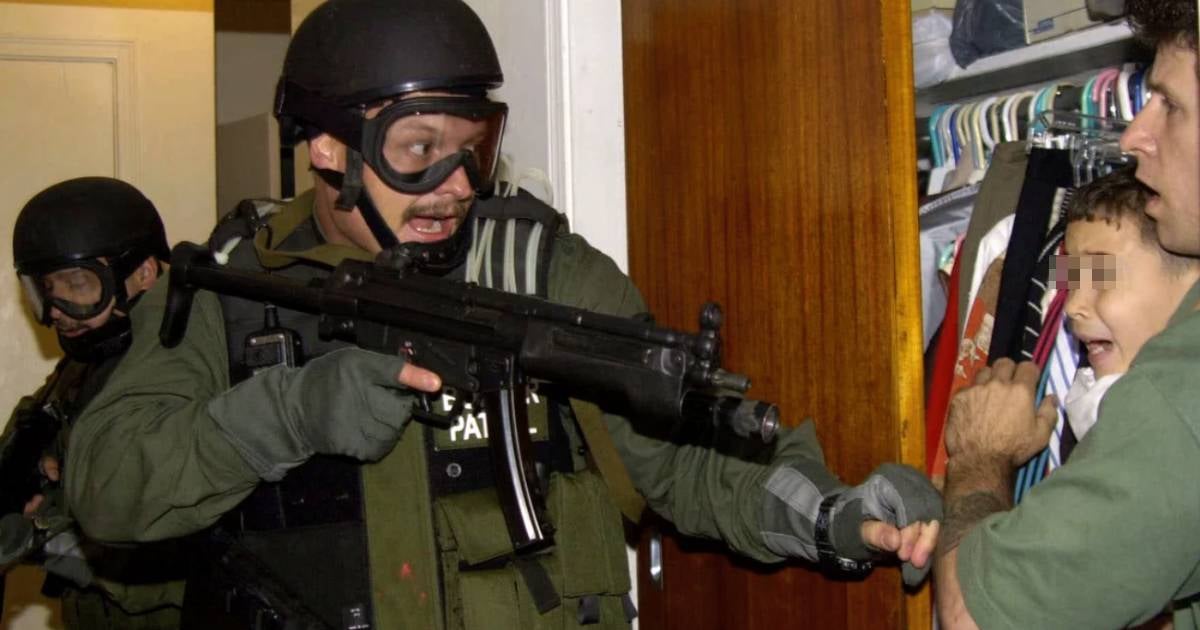
On November 25, 1999, the story of young Elián González shocked the world when he was rescued off the coast of Florida, tied to a buoy after drifting on a raft while attempting to reach the United States.
His mother died in the attempt, leaving the 5-year-old boy at the center of a legal and political battle that would change the course of relations between Washington and Havana.
Manny Díaz, the lawyer who represented Elián's family in Miami, reflected on the case 25 years later, describing it as an episode of profound sadness.
"It was another case of an immigrant family separated by politics," he stated in an interview with Telemundo 51.
Díaz expressed regret that the decisions made were not focused on the child's well-being, but rather on political interests.
"We had, as lawyers, a battle not only against the Cuban government but also against our own government," he expressed.
The case of the young raft boy triggered a diplomatic crisis between both countries. While Elián's family in Miami, supported by the Cuban exile community, fought to keep him in the United States, his father, backed by the Cuban government, sought custody and traveled to the U.S. to claim him.
The litigation culminated in a court ruling that ordered the return of the child to his father.
However, Elián's delivery became an iconic moment when, in the early hours of Easter Sunday, federal agents carried out an operation at his relatives' home in Miami to return him to Cuba.
Elián's return to Cuba left deep divisions within the Cuban-American community, sparking an internal debate about the strategies and the impact of exile actions on its public image.
Carlos Saladrigas, a Cuban-American businessman, recalls the case as a pivotal moment. "It made us reflect on how much harm we did to ourselves and to our image," he stated.
The renowned journalist Wilfredo Cancio, who was on duty that November 25, 1999, recounted that from the very beginning, "a drama emerged that shook southern Florida for 216 days," and even the media—despite the absence of social media—"experienced days marked by schizophrenia and tension."
In his view, the tragedy of Elián "was a turning point in the life of the exiled community, which also raised questions of identity for Cuban Americans and changed the perspective on relations with the Cuban regime from the upper echelons of Washington's political circles."
"The case sparked a sharp polarization among exiled Cubans regarding the fate of the minor and, at the same time, intensified tense disagreements over U.S. policy and legal matters related to Cuba," it was noted in an article published in CiberCuba a few years ago.
Currently, Elián González, 31, is an industrial engineer and has maintained a limited public life in Cuba. In a rare interview, he expressed his desire to visit the United States, a country that irrevocably impacted his life 25 years ago.
Frequently Asked Questions about the Elián González Case and Its Impact.
Who is Elián González and why was his case so significant?
Elián González is a Cuban citizen who was rescued off the coast of Florida in 1999 when he was five years old, following a shipwreck in which his mother died. His case became a subject of international attention due to the legal and political battle between his family in Miami and his father in Cuba, marking a significant turning point in U.S.-Cuba relations.
How was Elián González's legal situation resolved?
The legal situation of Elián González was resolved with a court decision ordering his return to his father in Cuba. The case culminated in a federal operation at his relatives' home in Miami to take him back, leaving deep divisions in the Cuban American community.
What impact did the Elián González case have on the Cuban-American community?
The case of Elián González created a sharp polarization among the Cuban exiles in Miami, intensifying tense disagreements over U.S. policy towards Cuba. It became a turning point in the life of the exiled community, sparking an internal debate about their identity and the political strategy of the Cuban exile.
What is the current situation of Elián González?
Currently, Elián González is an industrial engineer living in Cuba. He maintains a limited public life but has expressed his desire to visit the United States, a country that has irrevocably impacted his life.
What reflection does Manny Díaz have on the case of Elián González?
Manny Díaz, the lawyer for Elián's family in Miami, reflects on the case as an episode of profound sadness, lamenting that the decisions focused not on the child's well-being, but on political interests. He believes it was yet another instance of an immigrant family torn apart by politics.
Filed under: